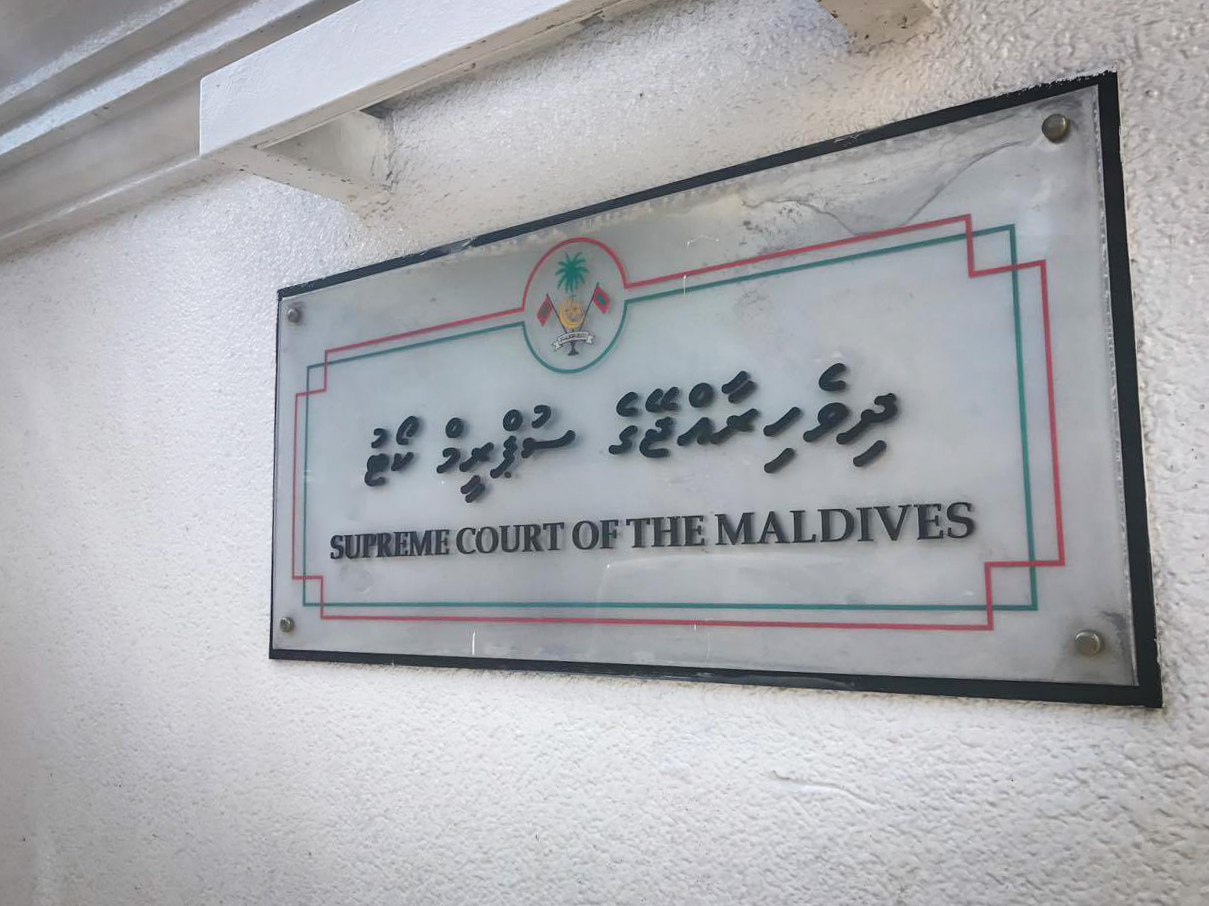The tale of two institutions - Separation of powers in the Maldives
While this has led judges to be criticized for eroding the doctrine of separating powers, it is not the first they have been subject to this particular accusation


Parliament's public finance committee
On the night of 11th July, President Abdulla Yameen held a press conference to address ongoing speculation about corruption and allegations of tyranny made against his administration. It was his first public appearance since the bombing of a presidential speed boat when both he and First Lady Fathimath Ibrahim were aboard it in 2016.
What surrounded him was heir of nonchalance and his responses to journalists seemingly came from a position of condescension. His responses, including his declaration that he does not hold the same ‘superstitious’ beliefs as the rest of the country’s Muslim population and his exclamations of whether not journalists that posed questions to him were being ‘serious’ only guaranteed one thing – that he is completely and utterly sure of himself.
What is particularly striking about President Yameen having adopted this personality is that his Attorney General had recently filed a case with the Supreme Court pursuing a floor-crossing ban. The Supreme Court had ruled that parliamentarians who switch parties will be disqualified. While this has led judges to be criticized for eroding the doctrine of separating powers, it is not the first they have been subject to this particular accusation.
In the Maldives, separating powers and a system of checks and balances is enshrined in the constitution passed in 2008. However, procedural inadequacies such as regulations on appointing judges and lack of accountability for judges, prosecutors, and court staff have proven to erode this doctrine.
The nation has also been heavily criticized by international organizations, especially after the aforementioned hindrances to the justice was mentioned in a report by the United Nations’ special rapporteur on the Independence of Judges of Lawyers brought them to light in 2013.
As can be concluded from the preceding paragraphs, the doctrine of separation of powers is not only integral to maintaining enjoys freedom and liberty amongst the common people, but to the very function of state and society itself. It is the one of the pillars of modern democracy.
While the tripartite system is accredited to the period known as Entitlement in central Europe, namely the French philosopher Baron de La Montesquieu, it can be dated back to as early as the work of Greek philosopher Aristotle.
In his seminal treatise, The Politics, Aristotle says that the lawgiver – which in modern day context would be the constitution in most democracies – must ideally follow a system of separating responsibilities of the state to the elected members of a ‘general assembly, public officials, and the judiciary’. The concept is immensely varied, with the Communist Republic of China having uplifted certain institutions to warrant it as part of the state – such as auditing powers and civil society oversight – which in countries like the United Kingdom are included as part of the executive branch. Further, the European Union – which is neither a country nor a federation – has separation purely by virtue of it wielding political power over members of a collective society.
Monstesquie formally defined the manner in which a state where separation of powers does not exist could hinder the rights of the people. In his book, Morals, he notes that judges mediate the conduct between the executive branch and the general people, thus conferring this power to elected officials would result in judgements made for popular acclaim and not standards set in law, which can be detrimental to the users of a court – who are everyday members of society.
He further argues that if the power to adjudicate was left to the executive, it would overpower the legislative functions of a state and therefore separation of powers as a purposeful doctrine seizes to exist. However, it is important to note that the doctrine of separating powers – despite judicial independence being heavily dependent on it and vice versa – did not initially involve separating functions of judges from that of the executive. The British king had been taken it upon himself to appoint judges – which made them dependent upon the will of the crown. Kings continued to hold their power over courts and some sovereigns since, such as King Charles II, who is known to have appointed and dismissed a number of judges during his tenure.
Even up until the eighteenth century, judges could have been removed for no reason at all, given that the sovereign wished so or through a parliamentary vote. It was the Act of Settlement in 1701 that ensured that the tenure of judges could only be decided factors outside factors like opinion or will of the powerful. The Settlement Act stipulated that judges can retain their positions so long as they maintain good practice and behavior, quamdiu se bene gesserit. Even in the United States, the House of Representatives had control over decisions of the courts – given that they would pass and appoint grants to adjudicators.
In 1772, when some US jurisdictions were controlled by the crown, King George III deterred this by establishing a fixed salary for judges of superior courts. While this served to limit the House of Representatives’ influence on the judiciary, it paved way for the executive branch of state to control it. It was not until 1776, when the United States of America ratified its constitution following the Treaty of Paris that the judiciary truly became independent. James Madison, who played a key role in introducing the federal government system, echoed Montiquieu’s sentiments that accumulating legislative, executive, and judicial authority in any one party by saying that such an accumulation can only ‘lead to tyranny’, in his book The Federalist Papers.
However, Madison further suggested a fully functional and sustainable state cannot exist without interaction between these branches and therefore suggested that they must not be completely separate but only so far as to not allow one branch to erode the function of another. With the conception of a judiciary free from the other branches of state, with adjudicators not being subject to removal based on claims that are vague or blatantly political, the question then arose about the methods and standards by which courts are to be regulated.
It is important to note that the idea of a tenure that lasts through ‘good behavior’ ensures that judges will are free to pass laws with no mind to appeasing the legislators and executive powers, therefore solely basing their verdicts on standards of law and morality. This means that judges are ideally free to remain in office as long as they do not engage in inappropriate acts, misdemeanors, crimes, and other conduct that disregard the morality of society.






